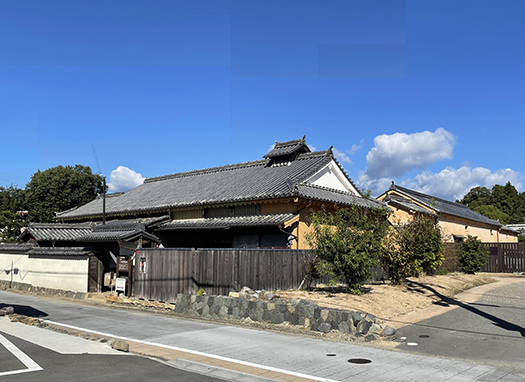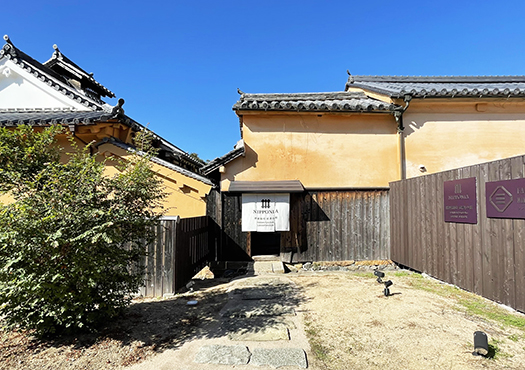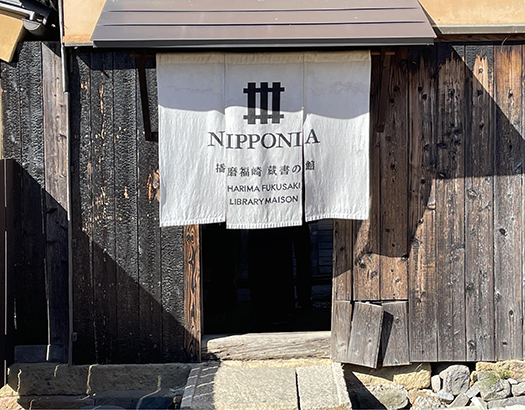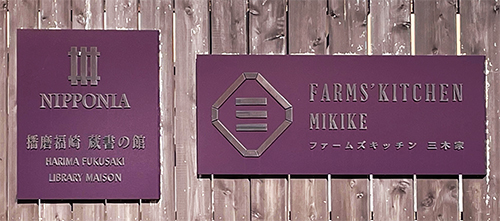


さて先日は住宅業界専門誌「建築知識ビルダーズ」さん主催のエコハウスコンテストの審査員を務めさせていただいていましたが、自分自身もながく住宅関係に関与する人生を送ってきて、そのキャリアもワンクールセット感を持っています。
しかしそういう経過を経て、これからの日本の住宅産業についてもう一度振り返り、そして今後の展開方向というものを考えて見る視点も大切だと思えてきた。コンクール審査員という経験をさせていただいて、それでは今後、日本の建築はどういう方向を目指すべきかと、多くのみなさんの「応募」活動に触れそうしたみなさんの直接の肉声に接したことで「衆知を集めた」感があった。
そんな思いを持っていたのですが、最近見ていた住宅建築の中でわたし自身の家系にもつながる古建築を再訪していた記憶が一気に再活性され、起承転結が輪廻したような感覚を味わった。
なんとその縁のある建物の一部が改装されてホテルに利活用されていることを知ったのです。写真は兵庫県の「福崎町」にある三木家住宅ですが、外観写真の右手奥、その石蔵施設部分がホテルに改装されていたのであります。コロナ禍でちょっと再訪には時間が空いたのですが、それにしてもこの建物をホテルに改装して再利用しようというビジネスコンセプトには驚き、そして拍手したくなった。
通常の民家の新築に当たって高断熱高気密の住宅技術が活用されることで、さまざまな側面での技術変容が生起する。そのことが普遍化していくことは喜ばしい業界変化だと思います。そしてその部分での進化・高度化が追求されることは自然だろうと思われます。大いに賛同する次第。
しかし一方で、日本にはすばらしい「情緒性」を保持し続けている古民家住文化がある。
北海道でごく自然に高断熱高気密での世界共通的な住空間づくりが行われていく中に身を置いていて、刺激をもとめて全国を歩いていると、この日本独自の住宅の「情緒性」というものに圧倒的にノックアウトされる。世界各地でもそれぞれの地域で独自の「伝統」住文化があって、それが人間社会の思念の大きな部分に強い影響力を持っていることに気付く。
ひさしぶりに「伝統建築」派のみなさんと会話したりすると、こういう良質な部分をこそ北海道の住文化は大いに「学ぶ」必要があると思えてくる。さきほど書いたように「輪廻」する感覚がある。

こちらの「三木家住宅」はわたし自身のご先祖さまの一統として播磨国・福崎で続いた家系ですが、その古建築に現代的な価値感が付与され「新生」要素を持たされていることに非常に驚かされ、同時にちょっと胸アツな気分を持たされた次第。こういう動きを整理整頓してみたくなった。
English version⬇
The Future Possibility of “Onmyoshin”-type Architecture
A hotel that utilizes the emotionality of the “Miki Family Residence” in Fukusaki, Hyogo Prefecture in a modern way. This could be seen as an untapped business area for the housing industry.
The other day, I was serving as a judge for the Eco-House Contest sponsored by the housing industry magazine “Architectural Knowledge Builders.” I myself have been involved in the housing industry for a long time, and my career has a sense of one-cool-set.
However, after going through this process, I have come to think that it is important to look back on the future of the Japanese housing industry and consider the direction in which it will develop in the future. Having had the opportunity to serve as a jury for the competition, I was wondering what direction Japanese architecture should take in the future, and I felt that I had “gathered a lot of knowledge” by being exposed to many people’s “entry” activities and hearing directly from them.
I had this feeling of having “gathered the collective wisdom” of the many people who had submitted their ideas, and having come into direct contact with their real voices, I felt as if I had experienced a reincarnation of the beginning and the end of the story.
To my surprise, I learned that a part of the building with which I had a connection had been renovated and was being utilized as a hotel. The photo shows the Miki family residence in Fukusaki-cho, Hyogo Prefecture, and the stone warehouse facility on the far right side of the exterior photo has been converted into a hotel. I was surprised at the business concept of converting this building into a hotel and reusing it, and I wanted to applaud it.
The use of highly insulated and airtight housing technology in new construction of ordinary private houses will bring about technological transformation in various aspects. I think it is a welcome change in the industry that this will become a universal phenomenon. It is natural that evolution and sophistication in this area will be pursued. I agree with this viewpoint to a great extent.
On the other hand, however, Japan has a culture of old private homes that continues to retain a wonderful “emotionality.
While in Hokkaido, I am surrounded by the natural process of creating a highly insulated, airtight, and globally common living space, when I walk around the country in search of inspiration, I am overwhelmingly knocked out by the “emotionality” of Japan’s unique housing culture. I realize that each region of the world has its own unique “traditional” housing culture, which has a strong influence on a large part of human society’s thought process.
After a long time since my last conversation with “traditional architectural” people, I feel that Hokkaido’s housing culture needs to “learn” from such quality aspects. As I mentioned earlier, there is a sense of “reincarnation.
The Miki Family Residence here is a family lineage of my own ancestors in Fukusaki, Harima Province, and I was very surprised to see that modern values have been added to this old building to give it a “new life” factor, and at the same time, it made me feel a bit excited. I wanted to organize this kind of movement.
Posted on 10月 29th, 2023 by 三木 奎吾
Filed under: 住宅マーケティング, 古民家シリーズ







コメントを投稿
「※誹謗中傷や、悪意のある書き込み、営利目的などのコメントを防ぐために、投稿された全てのコメントは一時的に保留されますのでご了承ください。」
You must be logged in to post a comment.